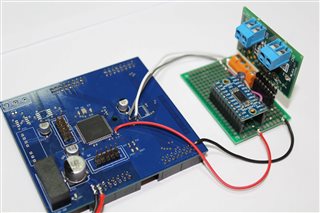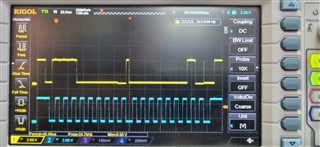Other Parts Discussed in Thread: LDC1614, LDC1614EVM
Hello there,
I found a really strange problem with my TCA9548A setup:
- I can read write / read back the control register as expected, have tested this with clk range 10Khz - 400Khz.
- Here the funny part: Channel switching commands will select a requested channel only if clock frequency is 100Khz or above,
I have tested this with 10 Khz , 90Khz, 100Khz and 400Khz.
Example (based on clk 90Khz):
1.) Writing a value of 1 to control register.
2.) Reading back the control register return vale of 1, as expected.
3.) No communication possible with channel 1.
Example (based on clk 100Khz):
1.) Writing a value of 1 to control register.
2.) Reading back the control register return vale of 1, as expected.
3.) Communication working with channel 1.
I have double checked with scope that following points are OK:
- Selecting baud rate in the I2C API
- Bypassing the TCA9548A completely, MCU directly connected to I2C slaves. No problems found regardless clk frequency.
Any ideas greatly appreciated.
Regards
Jo





